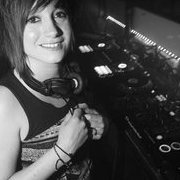-
Activity Stream
-
0
dj styluses 8 Best DJ Styluses and Cartridges for Mixing and Scratching
For vinyl DJs, the right stylus (needle) is a crucial part of the setup, ensuring both excellent sound quality and the longevity of vinyl records. Whether you’re scratching, mixing, or simply enjoying the warmth of vinyl, selecting a quality cartridge makes all the difference. In this guide, we’ll explore the best DJ needles for mixing and scratching in 2025, offering expanded product reviews, key features, and a comprehensive buyer’s guide to help you choose the perfect cartridge for your needs... The post 8 Best DJ Styluses and Cartridges for Mixing and Scratching appeared first on GlobalDJsGuide. View the full article- dj cartridges
- mixing
-
(and 1 more)
Tagged with:
-
0
Where DJs Get Acapellas (2025 Edition)
It used to be so easy – we all just went to a website that shared them all (it was called acapellas4u, if you’re new to this, by the way – people still talk about it in hushed tones). But that site doesn’t work any more, nor do any of the other major acapella sites. … Continued The post Where DJs Get Acapellas (2025 Edition) appeared first on Digital DJ Tips. View the full article -
0
Arcana Instruments Strum Accessible Instrument
The Arcana Strum is an example of adaptive technology, designed to be able to be used by people with various types of physical and cognitive abilities.… Read More Arcana Instruments Strum Accessible InstrumentView the full article -
0
modular synthesizers Applied Acoustics Systems Multiphonics CV?3 Modular Synthesizer Adds Polyphony & More
Applied Acoustics Systems has announced Multiphonics CV?3, a major update to their modular synthesizer and effect processor for macOS and Windows.… Read More Applied Acoustics Systems Multiphonics CV?3 Modular Synthesizer Adds Polyphony & More View the full article- applied acoustics systems
- aas
-
(and 1 more)
Tagged with:
-
0
drum machines Arturia Intros Retro-Styled Drumbrute Impact 1984
Arturia has introduced the DrumBrute Impact 1984, a retro-styled variant of their DrumBrute Impact analog drum machine.… Read More Arturia Intros Retro-Styled Drumbrute Impact 1984 View the full article
-



Recommended Posts
Join the conversation
You can post now and register later. If you have an account, sign in now to post with your account.